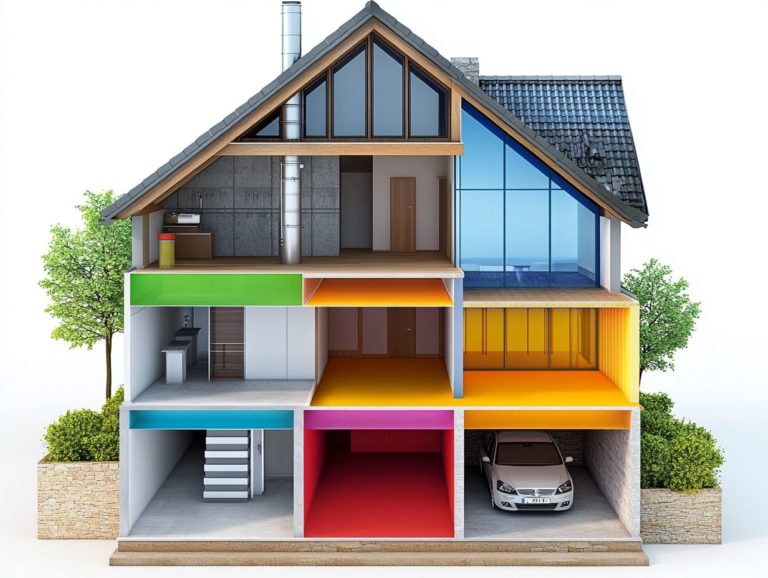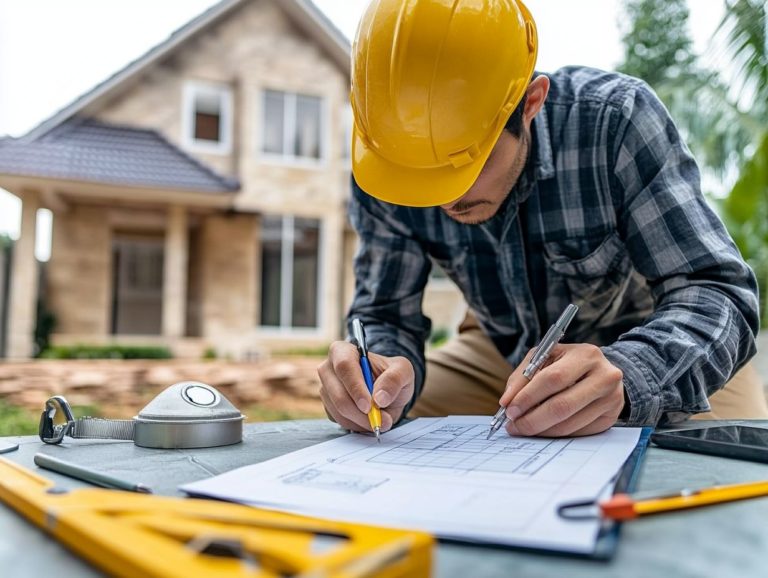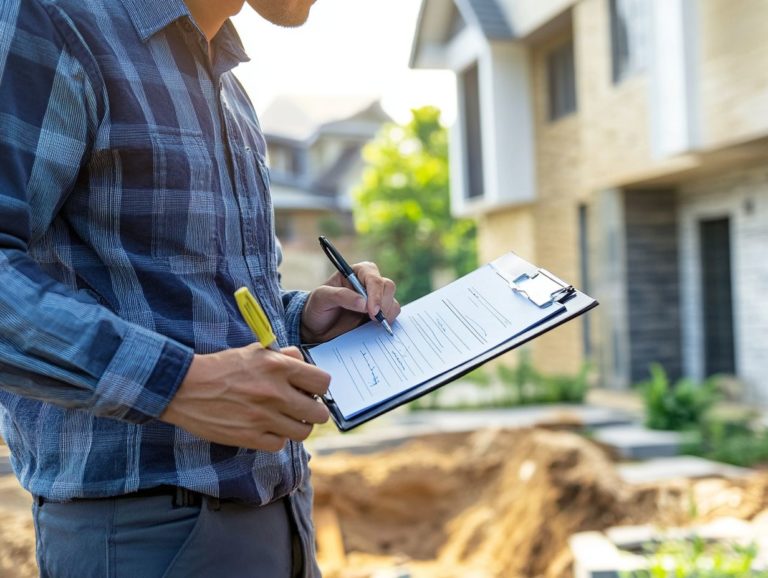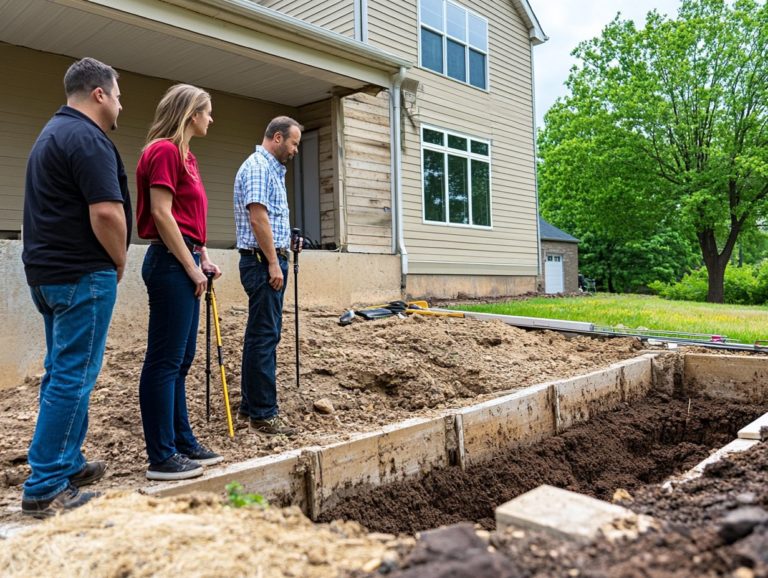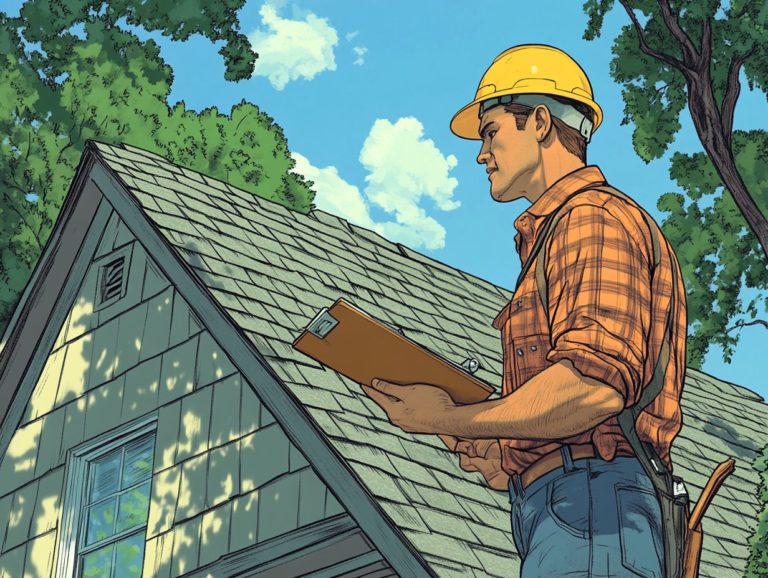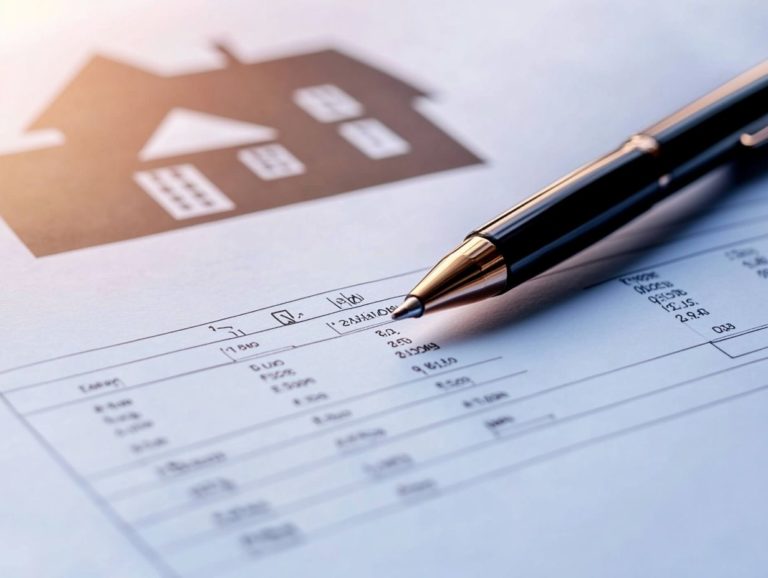What Does a Home Inspector Look For?
When purchasing a home, grasping its condition is essential. This is precisely where home inspections become invaluable.
This thorough process examines everything from the exterior elements like the roof and foundation to the intricate interior systems, including plumbing and electrical components. Each stage of the inspection uncovers critical insights about the condition of the property, empowering you to make well-informed decisions.
Let s explore the key aspects of home inspections together! This article outlines what inspectors scrutinize and why their findings are crucial for both buyers and sellers.
Contents
- Key Takeaways:
- Overview of Home Inspections
- Exterior Inspection
- Interior Inspection
- Structural Inspection
- Key Areas of Inspection
- Reporting and Recommendations
- Frequently Asked Questions
- What does a home inspector look for during a home inspection?
- What specific areas of a home does a home inspector examine?
- What types of issues or defects does a home inspector look for?
- Is it important to attend the home inspection?
- What happens if the home inspector finds a problem?
- Can a home inspection guarantee that a home is free of defects?
Key Takeaways:
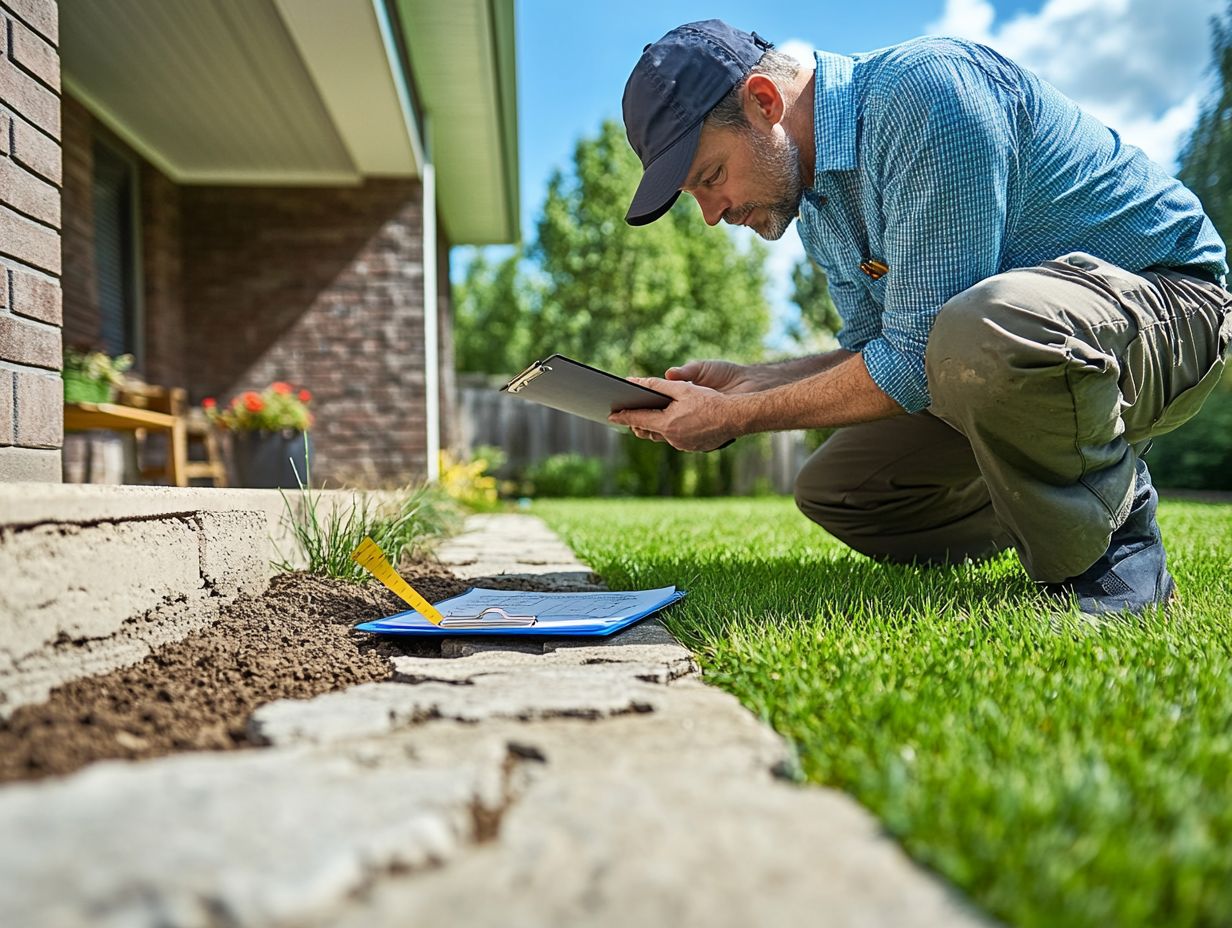
- Key Takeaway: A home inspection reveals potential issues before you buy.
- Insight: Inspectors evaluate the roof, foundation, plumbing, and more.
- A home inspection is a critical step in the home buying process, providing a thorough check-up of a property’s condition and potential issues.
- During a home inspection, the inspector carefully examines the exterior, interior, and structural components of a home, including the roof, foundation, plumbing, electrical, and heating, ventilation, and air conditioning (HVAC) systems.
- A home inspector will also check appliances, the attic, and the crawl space for any potential problems and provide a detailed report with recommendations for repairs or further evaluation.
Overview of Home Inspections
Home inspections play an essential role in the home-buying journey, ensuring you re fully informed about the property you re considering.
By engaging qualified home inspectors, you can uncover potential defects, safety issues, and environmental concerns that might impact your investment. This thorough process not only helps you assess the property s condition but also provides the vital due diligence necessary to understand what you re purchasing.
Inspections enable you to make informed decisions that influence your mortgage options and negotiations with sellers. Act quickly to capitalize on your findings!
Purpose and Importance
The primary purpose of a home inspection is to provide you with a thorough check-up of the property’s condition, allowing you to pinpoint repair costs and identify major systems that may need immediate attention.
By understanding the inspection process, you gain invaluable insights into potential issues that could impact your investment. This knowledge aids you in making informed decisions and enables you to negotiate with confidence.
The assessment checklist typically includes crucial components such as:
- Roof
- Foundation
- Plumbing
- Electrical systems
- Appliances
An accurate inspection report detailing the findings can serve as a powerful tool during negotiations, enabling you to request repairs or adjust your offer based on any deficiencies uncovered. Ultimately, this process fosters transparency and builds trust between you and the seller.
Exterior Inspection
The exterior inspection of a property is crucial for evaluating its overall condition. It emphasizes key components like the roof, foundation, and siding elements that often signal the need for significant repairs.
By paying close attention to these details, you can gain valuable insights into the property’s integrity.
Roof, Foundation, and Siding
A comprehensive inspection of your roof, foundation, and siding is essential for uncovering any environmental issues and safety concerns that could impact your property’s longevity and value.
During such an inspection, professionals will meticulously evaluate various roofing materials, including asphalt shingles, tile, and metal. They ll be on the lookout for common defects like curling, missing shingles, or rust that could jeopardize the integrity of your home.
Foundation elements are also assessed for signs of settlement, such as cracks that may suggest shifting soil or water damage. Proper siding installation is equally crucial; gaps or inadequate sealing can invite moisture intrusion and pest infestations, both of which heighten the risk of structural damage.
By understanding these vital components, you’re not just protecting your property; you re also enhancing its market appeal, ensuring that your investment remains sound for years to come.
Interior Inspection
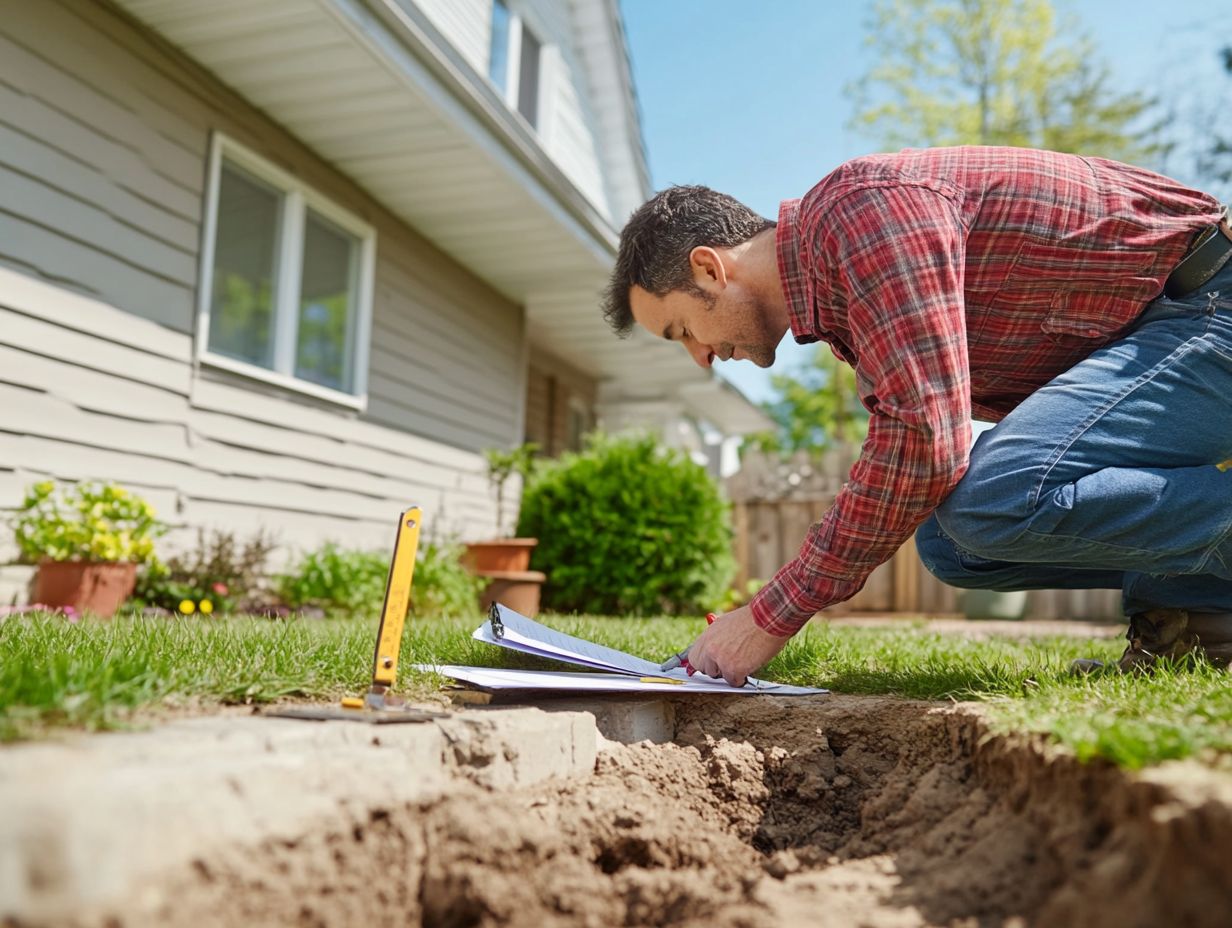
An interior inspection is essential for assessing the functionality and safety of key systems like plumbing, electrical, and heating, ventilation, and air conditioning (HVAC).
These elements are crucial for ensuring a comfortable living environment.
Plumbing, Electrical, and HVAC Systems
Thorough inspections of plumbing, electrical systems, and HVAC are crucial for identifying potential issues, ensuring system efficiency, and verifying that all safety features are in place.
Inspectors check water pressure carefully to confirm it meets standards for safe consumption and optimal performance. They assess drainage systems to prevent blockages and leaks that could lead to significant water damage.
In electrical systems, common problems like outdated wiring or inadequate circuit breakers are closely examined. There s a strong focus on the importance of proper grounding to prevent electrical shocks.
HVAC systems are checked for their heating and cooling efficiency, as well as air quality. Inspectors ensure that all relevant safety standards are adhered to, creating optimal indoor environments for your comfort and peace of mind.
Structural Inspection
A structural inspection is essential for evaluating the integrity of crucial components in your home. It ensures that your living space is safe and sound while identifying any necessary repairs.
Prioritizing this assessment not only protects your investment but also provides peace of mind regarding the overall condition of your property.
Assessing the Structural Integrity
Assessing the structural integrity of a property requires a meticulous examination for signs of damage that might suggest significant repairs are needed. Documenting these findings in the inspection report is crucial.
Pay special attention to areas such as the foundation, roof, and load-bearing walls. Look for cracks, water damage, or indications of pest infestations. Each of these signs can unveil underlying issues that aren t immediately obvious.
Keep an eye out for uneven flooring or noticeable sagging; these can be red flags for compromised stability.
Your findings will play a vital role in determining the overall property value, as potential buyers frequently weigh the costs of necessary repairs during negotiations. A thorough inspection can bolster your position in negotiations or prompt a reevaluation of the property’s worth.
Key Areas of Inspection
Key areas for your inspection, such as kitchens, bathrooms, attics, and crawl spaces, hold equal significance in uncovering potential issues that could impact both the functionality and safety of your home.
Appliances, Attic, and Crawl Space
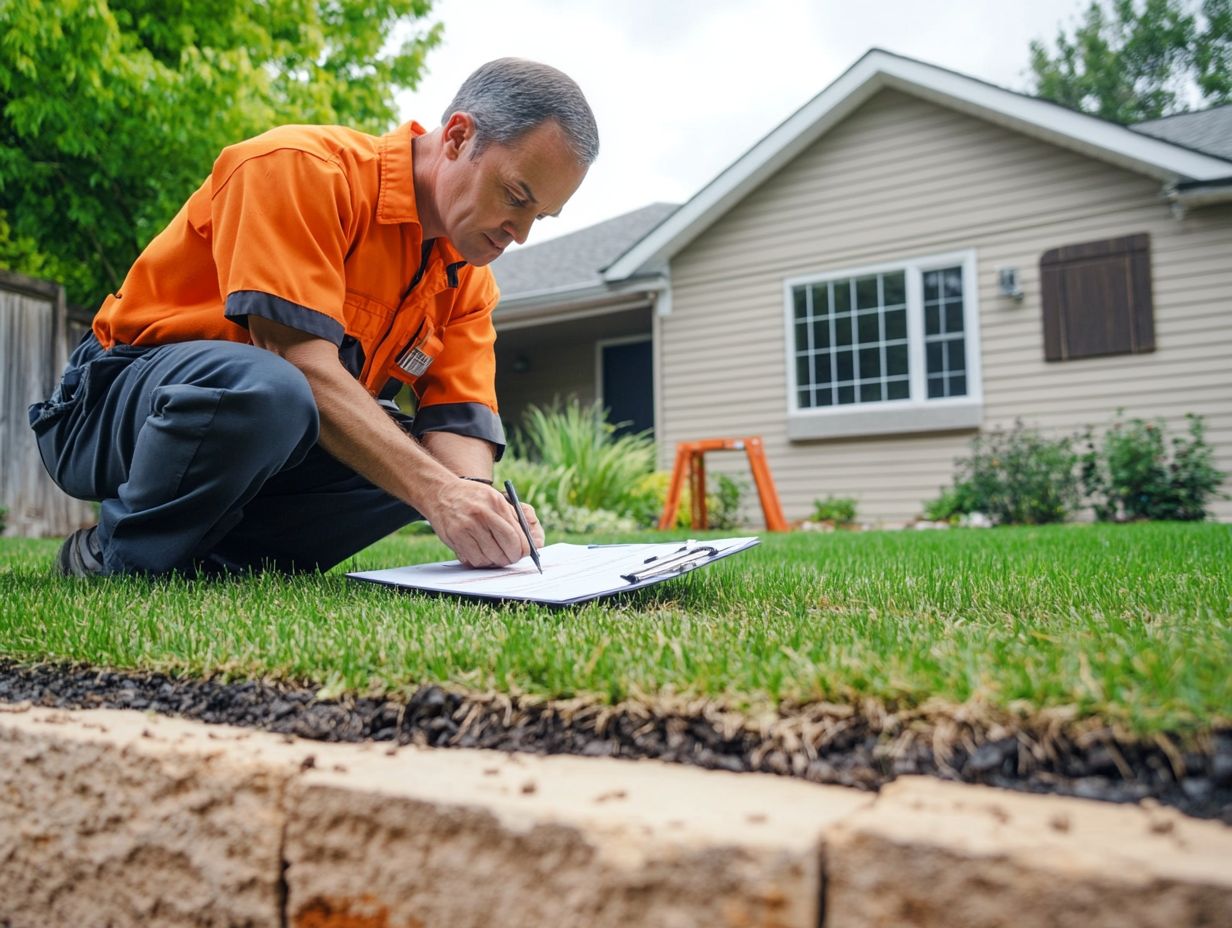
During an inspection, you should pay particular attention to appliances, the attic, and crawl space, as these areas can greatly influence your home s overall safety and efficiency.
Inspectors carefully examine kitchen and bathroom appliances to ensure they are functioning correctly. Malfunctioning units can lead to safety hazards or higher energy costs, so don t wait ensure your appliances are working right!
When evaluating attics and crawl spaces, they focus on insulation quality to enhance energy conservation and maintain comfortable indoor temperatures. They also watch for signs of pests that could compromise structural integrity and health.
Additionally, moisture levels may hint at underlying issues like mold growth or rot. Together, these evaluations are crucial for safeguarding your home against potential risks.
Reporting and Recommendations
The inspection report is a vital tool for home buyers, providing key insights and personalized recommendations for any identified issues.
Providing a Detailed Report and Suggestions
A detailed report with suggestions is essential in the inspection process. It gives you, as a home buyer, valuable insights into repair costs and necessary actions after the inspection.
Inspectors compile their findings into detailed reports. These documents outline the property’s condition and highlight potential future issues.
Clear communication in these reports is key. They translate complicated terms into simple language, ensuring you fully understand what you might face.
The actionable suggestions serve as your roadmap. They guide you toward informed decisions and the next steps in your homeownership journey.
This proactive approach dispels uncertainties. It also builds your confidence as you navigate the path to making your future home truly yours.
Frequently Asked Questions
What does a home inspector look for during a home inspection?
A home inspector looks for potential issues or defects in a home’s structure, systems, and components. To understand what to expect during a home inspection, they check for safety hazards, code violations, and repair needs.
What specific areas of a home does a home inspector examine?
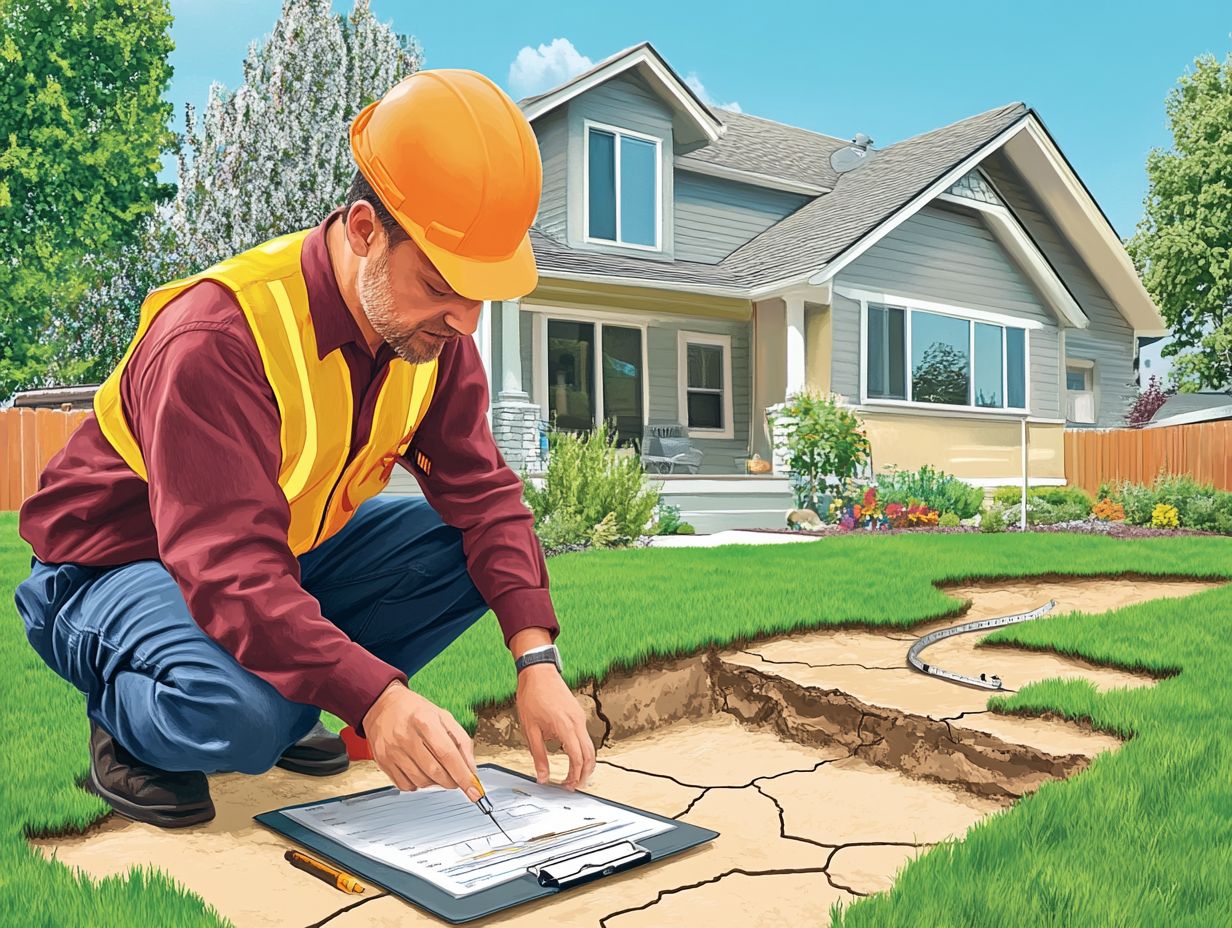
A home inspector typically examines the exterior, roof, plumbing, electrical, heating, ventilation, and air conditioning (HVAC), insulation, and interior. They may also inspect the foundation, crawlspace, and attic if these areas are accessible, as outlined in what to expect during a home inspection.
What types of issues or defects does a home inspector look for?
A home inspector identifies various issues like structural problems, water damage, mold, pests, and faulty wiring or plumbing. Knowing what to look for in a home inspection report can help you spot safety hazards such as asbestos or lead paint.
Is it important to attend the home inspection?
Yes! You definitely want to attend the home inspection if possible. This lets you ask questions and understand the inspector’s findings better.
What happens if the home inspector finds a problem?
If the inspector finds a problem, they include it in their report and may suggest further evaluation or repairs. Depending on the issue’s severity, you can negotiate with the seller to address it before closing or adjust the sale price.
Can a home inspection guarantee that a home is free of defects?
No, a home inspection cannot guarantee that a home is defect-free. It evaluates the home’s condition at the time of inspection but provides valuable information for you to make an informed decision.

